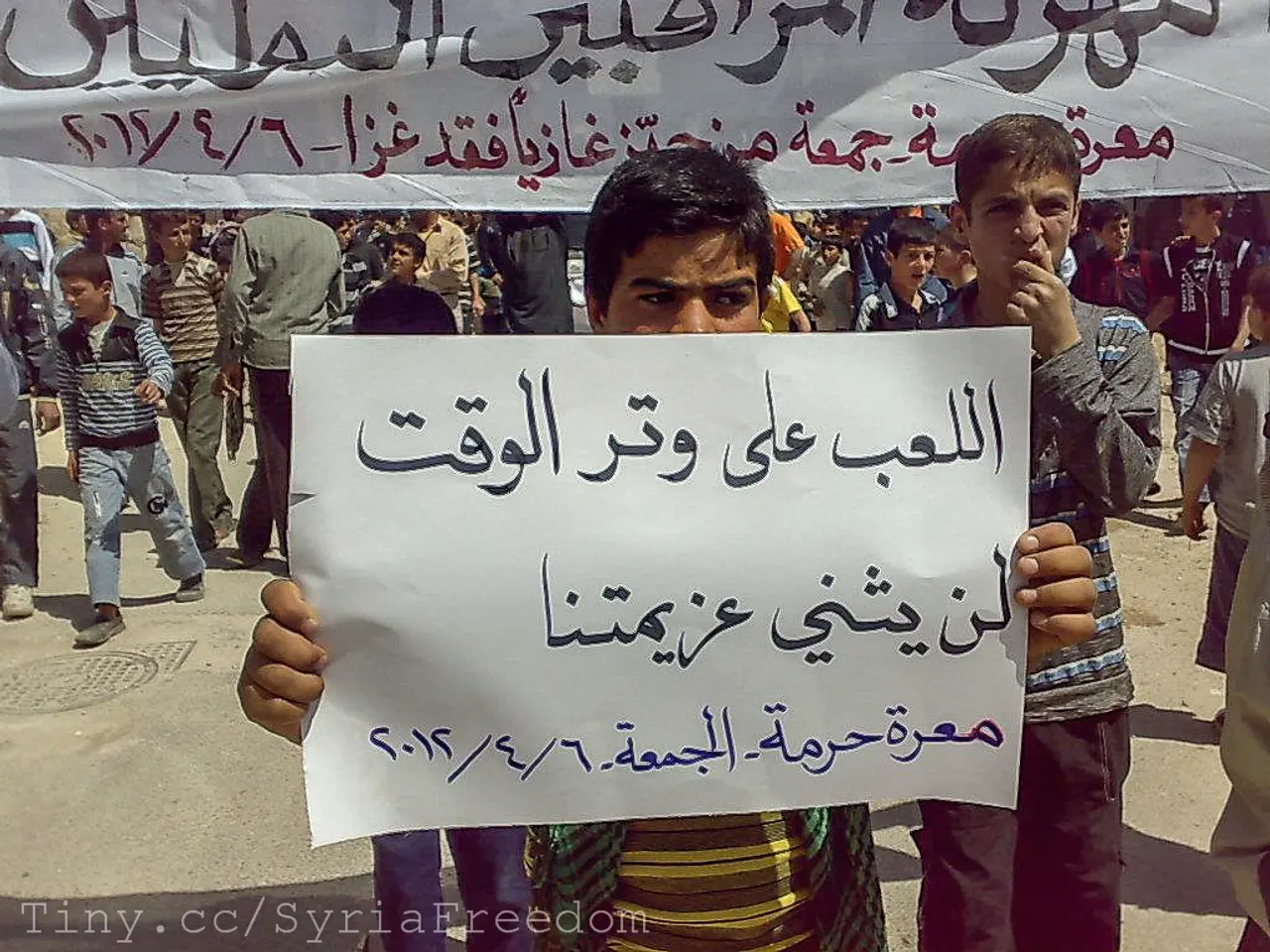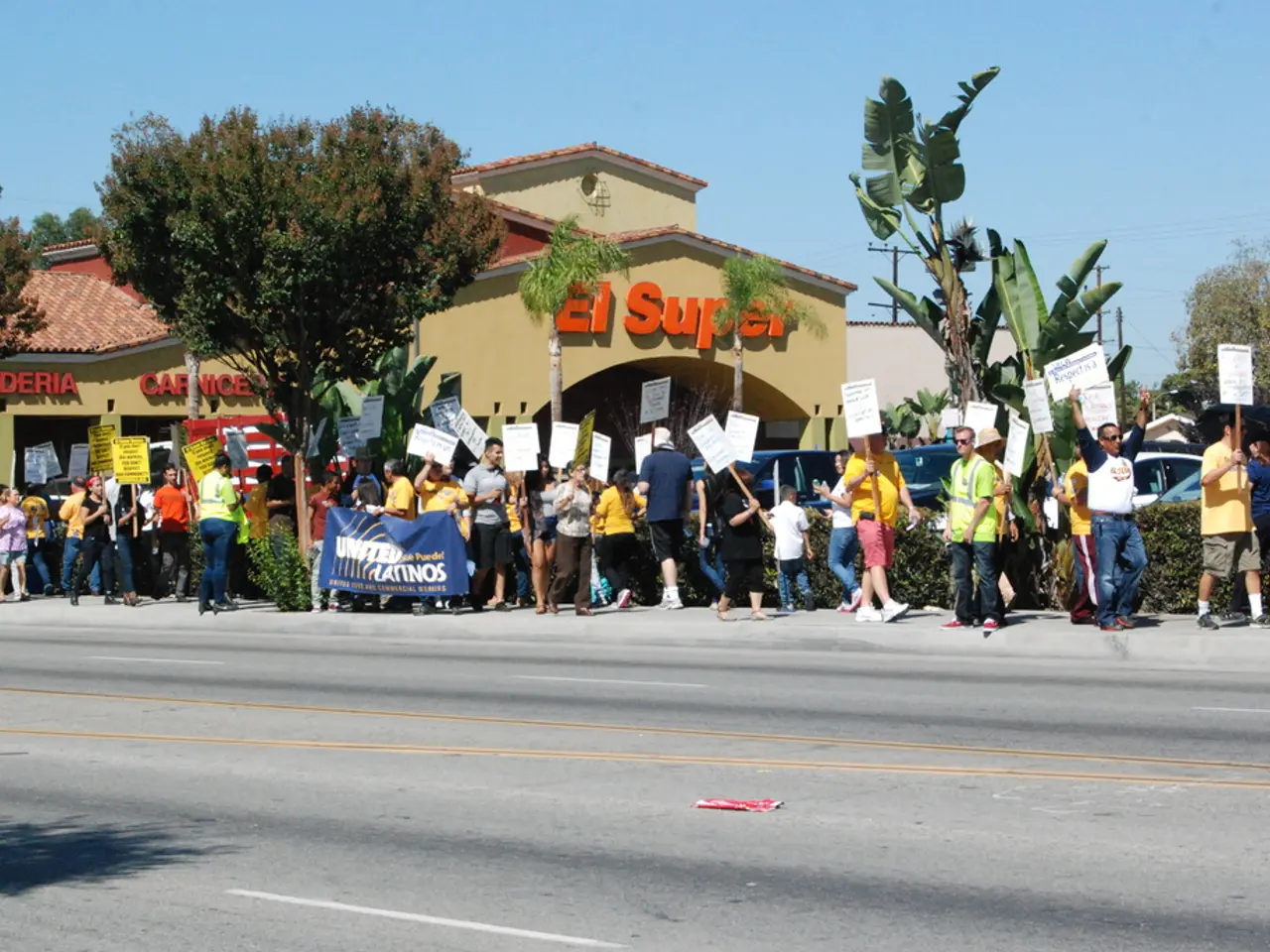Strengthening Nigeria's Civil Society as a Key Strategy Against Radicalization and Terrorism
Titled "Nigeria on the Brink: Addressing Extremism and Promoting Peace"
In the heart of Africa, Nigeria, fondly known as "Big Brother," stands precariously on the verge of turmoil. Disgruntlement among its citizens is reaching a boiling point, and their cries for help are growing ever louder. The wave of protests that swept through the nation between August 1st and 10th served as a call to action, a demonstration of dissatisfaction, and a demand for improvement.
Although the dust has settled on these protests, under the hashtag #EndBadGovernance, the simmering discontent still lingers in states with brittle stability and a populace bearing deep-seated mistrust of security and governmental institutions. If unattended, this discontent could potentially flare up as further protests or escalate into wider unrest and violence. However, it seems far more likely that the protest movement will gradually dissipate, and the government response will fall short of addressing their concerns.
To help rein in these challenges and foster a path to peace, Tammy Palacios, a senior analyst at the New Lines Institute, led a Nigerian Civil Society initiative, focusing on key recommendations for policymakers. Here are some of their central suggestions to counter extremism and promote harmony in Nigeria:
- Empower Local Communities: Engage local communities, particularly youth and women, to build trust and facilitate inclusive dialogue to address the grievances leading to extremism.
- Empower Civil Society: bolster the capacity of civil society organizations in Nigeria to carry out peacebuilding initiatives, monitor violence, and spot early signs of extremist activities.
- Address Root Causes: Tackle underlying socio-economic issues such as poverty, unemployment, and marginalization, as they contribute to the pull towards extremist groups.
- Improve Governance and Rule of Law: Enhance transparency, accountability, and the efficiency of security forces to mitigate corruption and abuses that may drive conflict.
- Adopt a Human Security Approach: Complement military action with social, economic, and political interventions to ensure a comprehensive approach and avoid relying solely on force.
- Promote Regional Cooperation: Encourage collaboration with neighboring countries to combat transnational extremist networks and share intelligence.
However, for more specific and detailed recommendations directly from Tammy Palacios and the Nigerian civil society working at the New Lines Institute, it would be beneficial to access direct sources or recent publications for direct quotes.
- To tackle extremism effectively in Nigeria, a human security approach is advocated, incorporating social, economic, and political interventions alongside military action.
- Embracing regional cooperation is crucial to combating transnational extremist networks by sharing intelligence with neighboring countries.
- Boosting the capacity of civil society organizations will enable them to conduct peacebuilding initiatives, monitor violence, and detect early signs of extremist activities in Nigeria.








